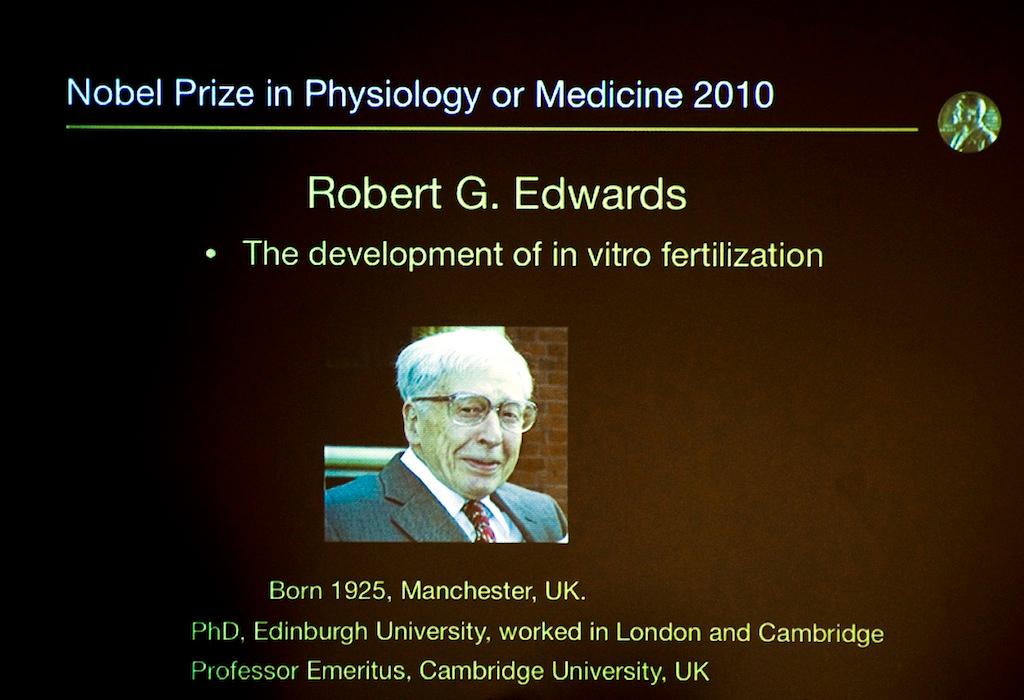Robert Edwards: Nobel Prize-winning test-tube baby pioneer dies at 87
A picture of a television screen at the Nobel Assembly at the Karolinska Institute in Stockholm announces that Britain’s Robert G. Edwards had won the Nobel Medicine Prize on October 4, 2010 for the development of in vitro fertilization. Edwards died after a long illness on April 10, 2013 at age 87.
British scientist and Nobel Prize-winner Robert Edwards, known for his pioneering work developing in vitro fertilization (IVF), has died. He was 87.
"It is with deep sadness that the family announces that Professor Sir Robert Edwards, Nobel Prize winner, scientist and co-pioneer of IVF, passed away peacefully in his sleep on 10th April 2013 after a long illness," the University of Cambridge said in a statement. "He will be greatly missed by family, friends and colleagues."
More from GlobalPost: UK: Free IVF for gay couples and women over 40
Edwards's work led to the birth of Louise Brown, who was born in July 1978 as the first test-tube baby. He was awarded the Nobel Prize in physiology for medicine in 2010, five decades after he began his IVF research, and was also knighted the following year.
Edwards founded the first IVF clinic in his hometown of Cambridge, England in 1980, two years after his research was proven to work.
"Bob Edwards is one of our greatest scientists," Mike Macnamee, chief executive of Bourn Hall, the IVF clinic Edwards founded 33 years ago, told Agence France-Presse. "His inspirational work in the early 1960s led to a breakthrough that has enhanced the lives of millions of people worldwide. He is held in great affection by everyone who has worked with him and was treated by him.
"It was a privilege to work with him and his passing is a great loss to us all."
Every day, reporters and producers at The World are hard at work bringing you human-centered news from across the globe. But we can’t do it without you. We need your support to ensure we can continue this work for another year.
Make a gift today, and you’ll help us unlock a matching gift of $67,000!
